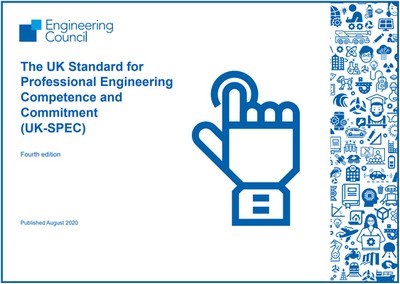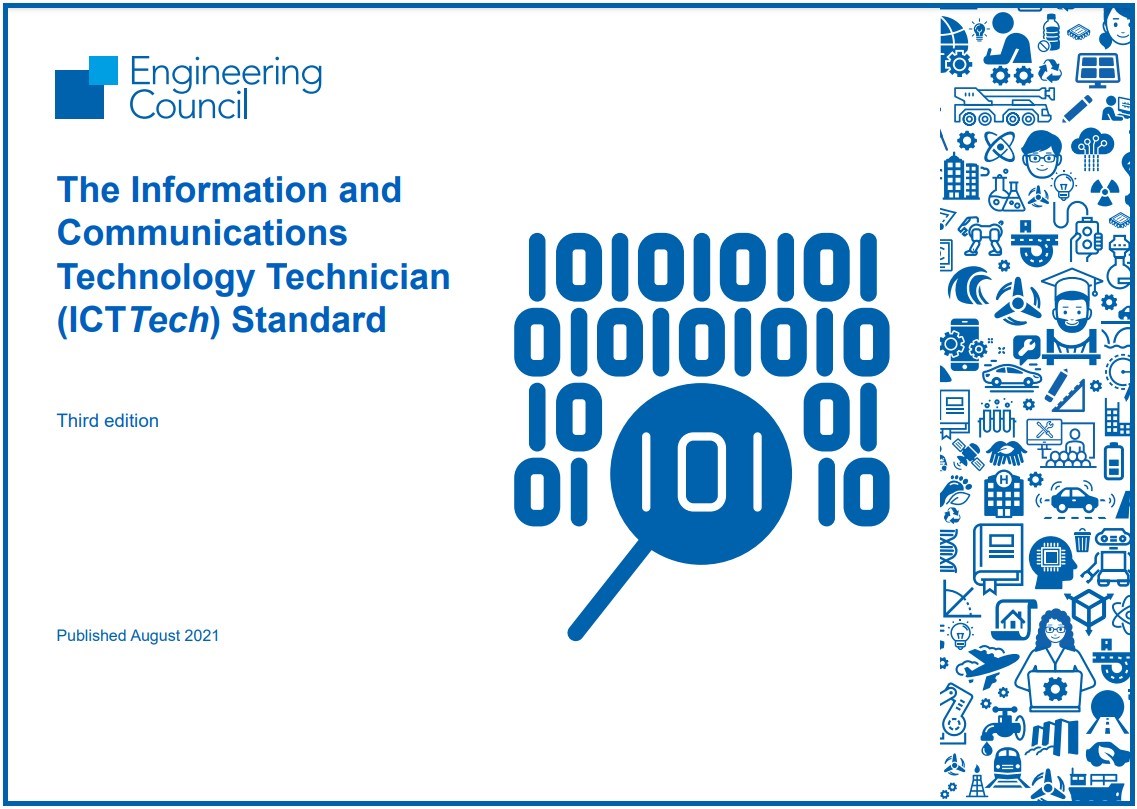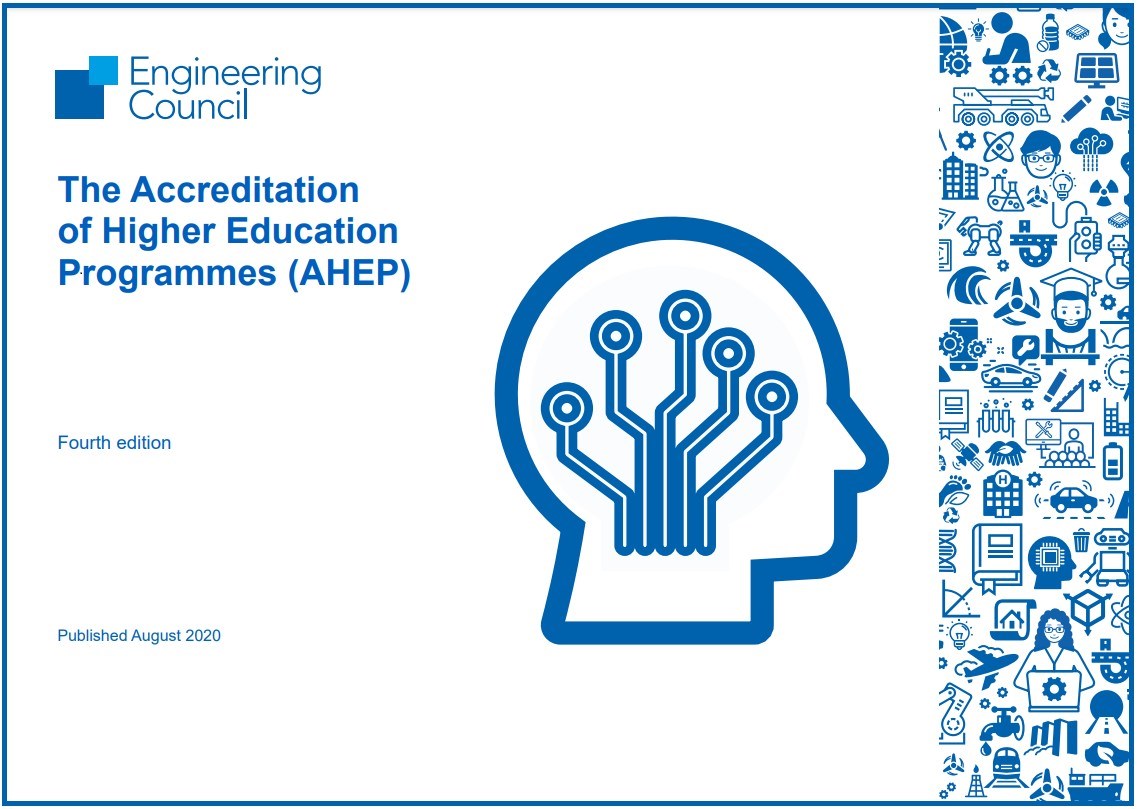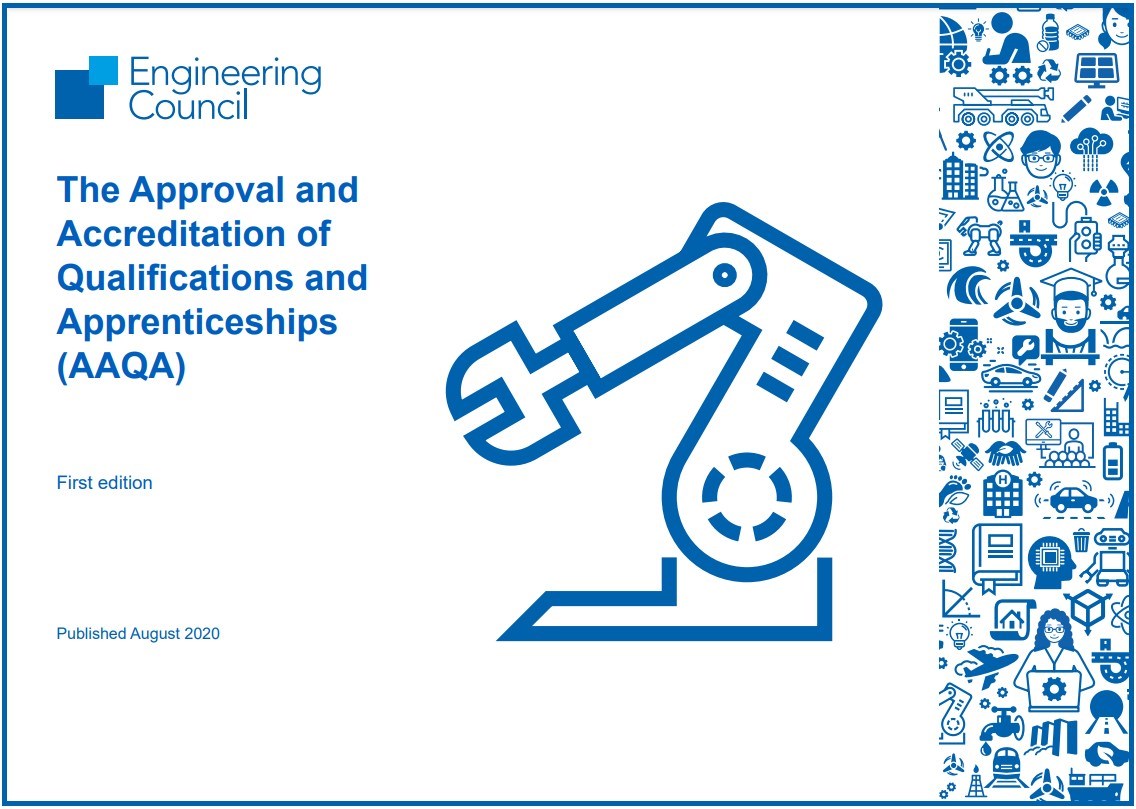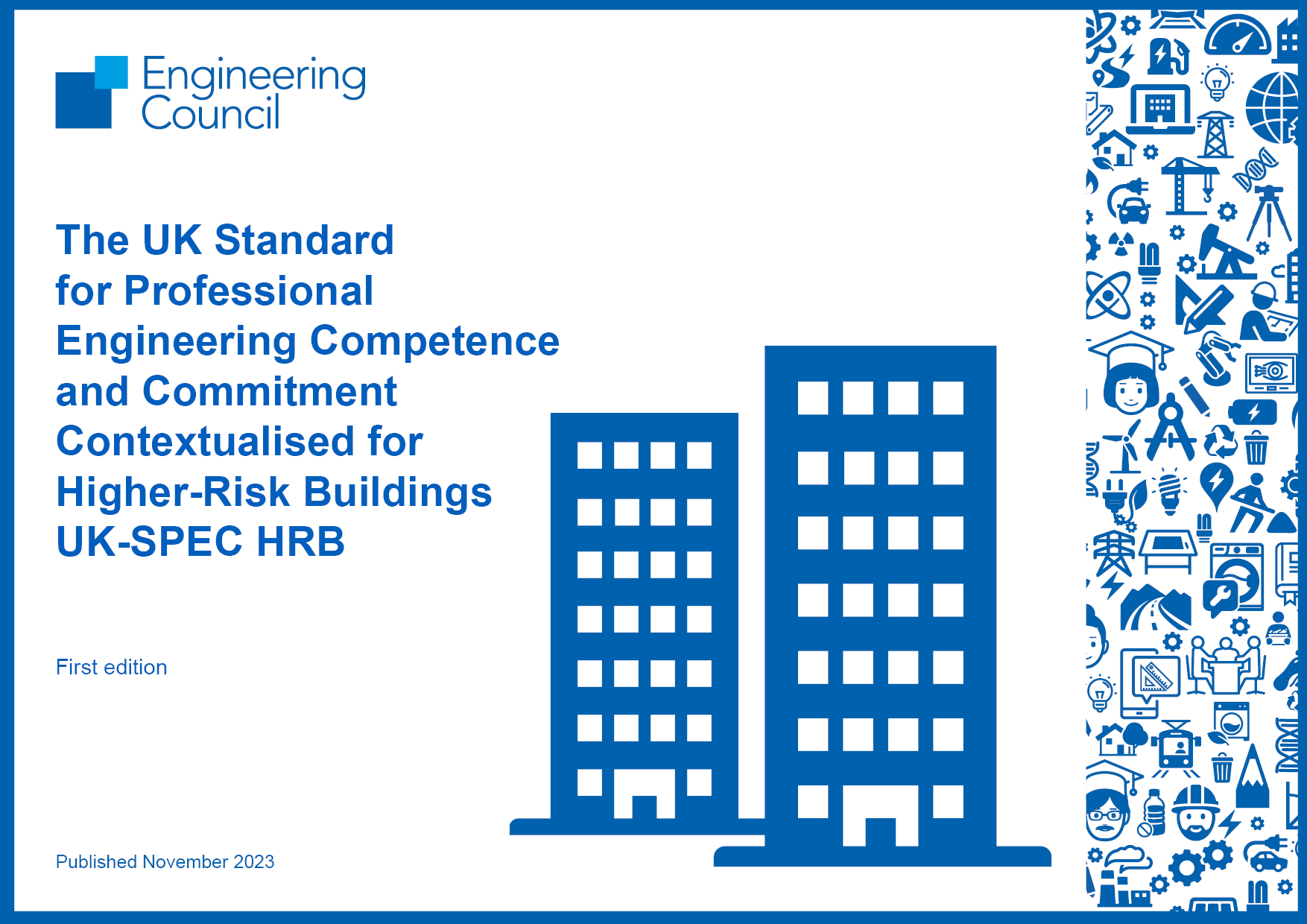Engineering Council

The Engineering Council’s Standards provide a framework for the assessment of the engineering competence and commitment required for professional registration. They also provide the criteria that educational programmes must meet to be recognised (approved or accredited) by the Engineering Council.
The standards are internationally recognised and industry relevant. They provide employers, their customers and wider society with confidence that professionally registered engineers and technicians have met the standards set by the profession and will act in society’s best interests. The standards focus on outcomes and what individual engineers and technicians can do.
The peer assessment process of individuals and degree programmes is undertaken by professional engineering institutions (PEIs) that are licensed by the Engineering Council to assess candidates for professional registration and recognise academic programmes. The application process is set out in UK-SPEC, but detailed questions about how to apply should be directed to the PEIs, who can also offer individual advice.
The Engineering Council also publishes the educational criteria required for the different levels of professional registration, known as learning outcomes. The learning outcomes to be met by degree programmes for them be recognised by the Engineering Council can be found in The Accreditation of Higher Education Programmes (AHEP) and those to be met by non-degree programmes (including apprenticeships) can be found in The Approval and Accreditation of Qualifications and Apprenticeships (AAQA).
The Engineering Council works with its partners across the profession to set and periodically review the Standards, which are available to view and download below:
UK-SPEC
The UK Standard for Professional Engineering Competence and Commitment (UK-SPEC) describes the standards for professional registration as an Engineering Technician (EngTech), Incorporated Engineer (IEng) or Chartered Engineer (CEng).
View UK-SPEC
ICTTech Standard
The Information and Communications Technology Technician (ICTTech) Standard describes the standard for ICTTech registration with the Engineering Council. A third edition of the ICTTech Standard has been published and will be implemented by 31 March 2022.
View the ICTTech Standard
AHEP
AHEP describes the accreditation process and required learning outcomes for engineering degree programmes.
View AHEP
AAQA
AQAA is written to support the approval and accreditation of non-degree programmes. AAQA replaces the previous Approval of Qualifications and Apprenticeships Handbook (AQAH), which is no longer valid.
View AAQA
UK-SPEC HRB
The UK Standard for Professional Engineering Competence and Commitment Contextualised for Higher-Risk Buildings (UK-SPEC HRB) is a new Standard from the Engineering Council that sets out the competences and commitments expected of engineers and technicians who work in the built environment sector, in particular on higher-risk buildings.
View UK-SPEC HRB
Recognised Standards
Licensed Institutions may contextualise the generic standards to meet the needs of particular technologies or industries with which they are concerned. These 'Recognised Standards' must be fully compliant with UK-SPEC.
… (Read more)
How Engineering Council Standards can help achieve UN Sustainable Development Goals
Nikhil Seth speaks with John Chudley CEng FIMarEST to discuss the United Nation's Sustainable Development Goals (UNSDGs), their importance in creating a sustainable world, and how engineers and Engineering Council Standards can help achieve them
… (Read more)

